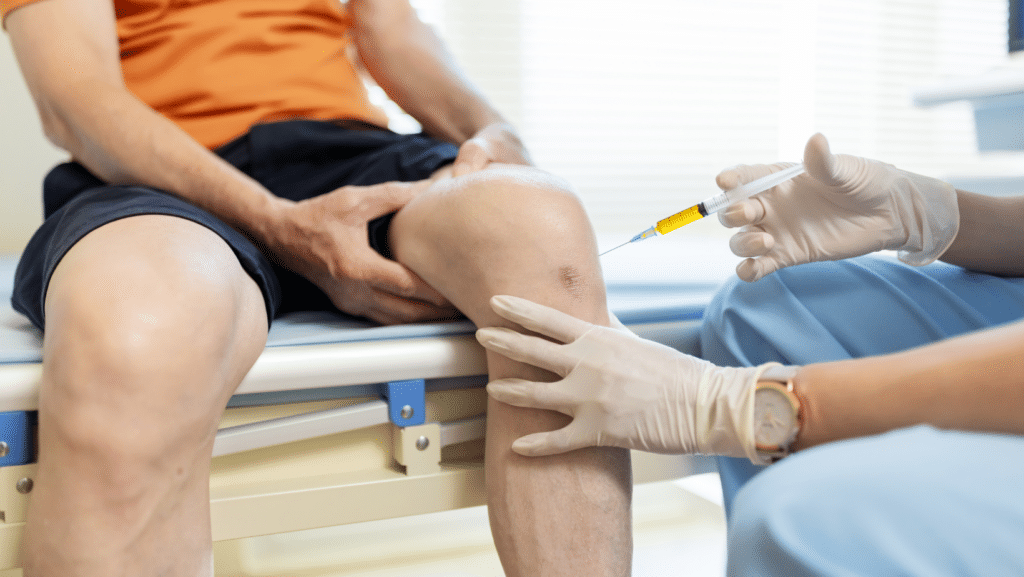Knee Injections: Do They Work?
Knee osteoarthritis is painful and can cause a decrease in mobility that puts limits on what you can do. Therefore many people turn to knee injections to help relieve this pain.
So what are knee injections? And do they work?
When physical therapy and pain medication taken by mouth fail to relieve the aching pain caused by osteoarthritis of the knee, sometimes doctors will recommend an injection of medicine directly into the arthritic joint. These injections of medicine can reduce inflammation and relieve pain.
The most common type of knee injections are corticosteroid injections and hyaluronic acid injections. Let’s take a look at what these medicines are and how they work, starting with corticosteroid injections.
Corticosteroids are synthetic drugs that closely resemble cortisol- which is a hormone that is naturally produced by the adrenal glands and regulated by the pituitary gland inside the brain.
Cortisol is essential for life, as it helps to maintain blood pressure, immune function, and the body’s anti-inflammatory processes.
Cortisol can also:
– help the body manage stress
– convert protein into glucose to boost flagging blood sugar levels
– work in tandem with the hormone insulin to maintain constant
– blood sugar levels
– reduce inflammation
– contribute to the maintenance of constant blood pressure
– contribute to the workings of the immune system.
Corticosteroid is a synthetic cortisol that is also used to help relieve knee pain by treating inflammation that is responsible for swelling and pain. Once injected into the knee, corticosteroids work quickly to temporarily relieve knee osteoarthritis pain.
The temporary pain relief from a corticosteroid injection can be helpful if a person with knee pain needs to engage in physical therapy, attend to an important life event, or postpone knee replacement surgery or genicular artery embolization to a later, more convenient time.
That being said, the key word here is temporary.
Though these injections can be helpful, they do not treat the knee condition itself, but rather provide short-term, temporary relief. Relief, that over time, will wear off completely.
It’s also important to note that just like any medication-related treatment, corticosteroid injections do not work for everyone. And, even when they are effective, the results may vary.
Some studies show that on average, just 40% of patients feel better after receiving cortisone shots for knee osteoarthritis.
In one study, one month after undergoing treatment, people who received cortisone injections were asked to report and rank their improvements on a 10-point scale, with 1 being the least improvement and 10 being the most improvement.
The average score that the participants ranked their improvement in symptoms was a 5 out of 10.
So yes, the injection helped, but only slightly.
The Bottom Line: Corticosteroid injections can be helpful for short-term knee pain relief leading up to a long-term solution treatment such as surgery or genicular artery embolization. However, these injections are not without their own set of side effects and risks.
In our next article, we will take a look at the use and efficacy of hyaluronic acid injections. As well as dive deeper into what the research says about these temporary solutions to osteoarthritis knee pain.


